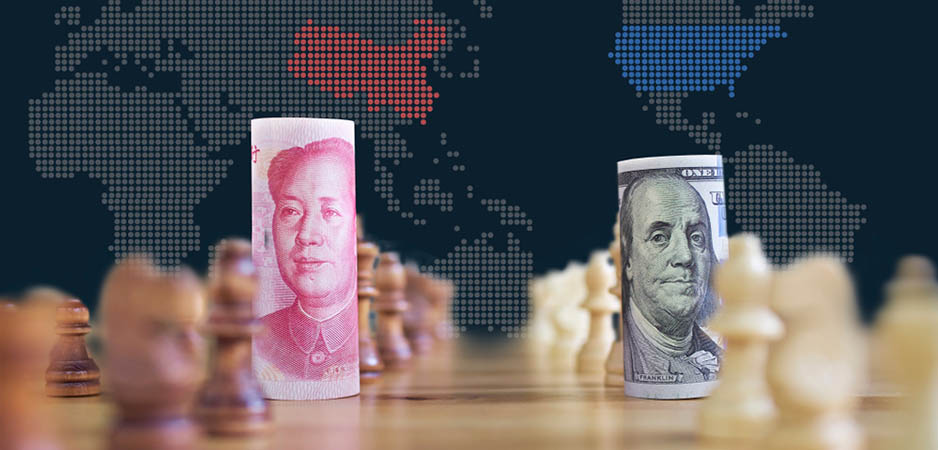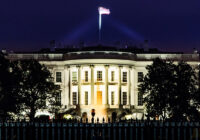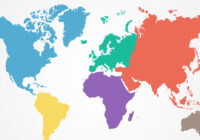A global order based on winning and losing is in itself a losing proposition. The Daily Devil’s Dictionary explains.
This week on Fair Observer, Daniel Wagner reminds those who may not be paying attention that we are witnessing the rapid decline of the US empire and the inexorable rise of China. Unless we find a way of saving the current order, according to Wagner, we are headed for a radically different world order dominated by the Chinese.
“Not since the modern liberal order was born in the 1940s has the world had to grapple with the possibility of its demise,” Wagner writes. Actually, that is not quite true. During the Cold War and at specific moments such as the Cuban missile crisis of 1962, the world very concretely envisaged its own global demise, a consideration that is coming back to haunt us again both in terms of nuclear risk and planetary extinction.
Here is today’s 3D definition:
Demise:
A euphemistic or cleverly ambiguous synonym for death, signifying the end of something once considered valuable, which may be understood as either final and absolute but also suggests the process of fading away. A possible compromise between physical death and gradually disappearance, it also admits the possibility of survival with severe degradation.
Contextual note
As with all speculations about the future, Wagner’s relies on a certain number of cultural stereotypes. The first, which is solidly embedded in the still dominant Western “liberal order” whose demise Wagner predicts, is that history is a form of competition in which there will always be a winner and a loser.
This brings with it the corollary that the world can only have one dominant cultural power at a given time. Nothing in history obliges us to think this way. It’s our mental image of the Roman and British Empires as well as the Pax Americana — another name for Wagner’s current “liberal order” — that leads us to assume that history always ends up selecting a single dominant power. Globally dominant empires are historical exceptions, including the ones we don’t often think about, such as Genghis Khan’s Mongol Empire, which certainly merits consideration when predicting that China will dominate the world in the decades to come.
US culture incites us to think that there is always a unique winner. Unlike soccer and chess, matches in American sports never end in a draw. There must be a winner and a loser and the manifest destiny of the US crowned the winner in the last century. But this imbalance implies that other scenarios, in which different regions and cultures coexist, are preferable, with local actors who in various ways dominate their neighbors. Despite Francis Fukuyama’s brave but failed attempt to declare an end to history three decades ago, no single “order” or cultural system needs to achieve absolute dominance. Belief in that illusion is what has allowed the idea of “American exceptionalism” to continue to fester in people’s minds.
In an interview with journalist Chris Hedges, former Marine intelligence officer and UN weapons inspector Scott Ritter offers a different perspective on winning and losing. Speaking of what he deems to be the “success” of Hezbollah in Lebanon and Syria, he explains: “When you go to war with a side who says that we can only win when we emerge victorious, simply surviving means the other side lost. Hezbollah did that in 2006.” He then applies it to the case of Iran: “That’s really all Iran ever has to achieve. They can’t defeat the United States, but they can outlast the United States.”
 Ritter makes a final point when he mentions that Donald Trump’s Iran policy is “accelerating the demise of the dollar as the world’s reserve currency” as Europeans and Russia scramble to allow trade based on the euro. In contrast, Wagner alarmingly predicts the yuan will simply replace the dollar. Ritter shows more nuance. History has not yet spoken.
Ritter makes a final point when he mentions that Donald Trump’s Iran policy is “accelerating the demise of the dollar as the world’s reserve currency” as Europeans and Russia scramble to allow trade based on the euro. In contrast, Wagner alarmingly predicts the yuan will simply replace the dollar. Ritter shows more nuance. History has not yet spoken.
Historical note
Wagner expresses the historical dilemma for the West in these terms: “Just at a time when the world is in need of the stability and good governance it has had the luxury of relying upon for decades, it must contemplate transitioning to a world order not of the West’s choosing.” The West gave us the consumer society and suddenly finds itself deprived of the ability to choose its world order.
While recognizing that this legal and institutional system of international relations has provided a framework for developing a globalized economy, we might ask ourselves how “liberal” that order has been and whether it really has provided a model of “good governance.” No one doubts that it has achieved wonders for elites in the West and elsewhere in the world. Many cite the success of Southeast Asian economies as the example that confirms Wagner’s point.
But in his book, Blood and Silk, which examines the recent history of the region’s political economy, author Michael Vatikiotis, writing from his vantage point in Singapore, perceives “beneath these sleek metropolitan glass-and-steel carapaces an enduring and seething underbelly of unmet popular aspiration suppressed by the effective concentration of power in the hands of a privileged few.” He adds: “Behind the smiling mask of tropical abundance there lurks the reality of perennial threats to stability and survival, fuelled by rising levels of social and economic inequality and a chronic absence of the institutional safeguards and legal certainty we take (or at least used to take) for granted in the West.”
We in the “West” are used to taking it for granted, before anticipating the system’s now generally predicted demise. But even at the core of Singapore’s fabulous success story, the darker truth of a dysfunctional system was apparent to those, like Vatikiotis, who took the time to look below the surface.
Now in the West we are beginning to acknowledge it on our own home ground, even though it’s been visible for decades.
*[In the age of Oscar Wilde and Mark Twain, another American wit, the journalist Ambrose Bierce, produced a series of satirical definitions of commonly used terms, throwing light on their hidden meanings in real discourse. Bierce eventually collected and published them as a book, The Devil’s Dictionary, in 1911. We have shamelessly appropriated his title in the interest of continuing his wholesome pedagogical effort to enlighten generations of readers of the news.]
The views expressed in this article are the author’s own and do not necessarily reflect Fair Observer’s editorial policy.
Support Fair Observer
We rely on your support for our independence, diversity and quality.
For more than 10 years, Fair Observer has been free, fair and independent. No billionaire owns us, no advertisers control us. We are a reader-supported nonprofit. Unlike many other publications, we keep our content free for readers regardless of where they live or whether they can afford to pay. We have no paywalls and no ads.
In the post-truth era of fake news, echo chambers and filter bubbles, we publish a plurality of perspectives from around the world. Anyone can publish with us, but everyone goes through a rigorous editorial process. So, you get fact-checked, well-reasoned content instead of noise.
We publish 2,500+ voices from 90+ countries. We also conduct education and training programs
on subjects ranging from digital media and journalism to writing and critical thinking. This
doesn’t come cheap. Servers, editors, trainers and web developers cost
money.
Please consider supporting us on a regular basis as a recurring donor or a
sustaining member.
Will you support FO’s journalism?
We rely on your support for our independence, diversity and quality.






